For a long time, adding double glazing to your home was almost an optional extra. You could have double glazing installed to add some style to your home, and you’d feel the benefits when it came to your energy bills.
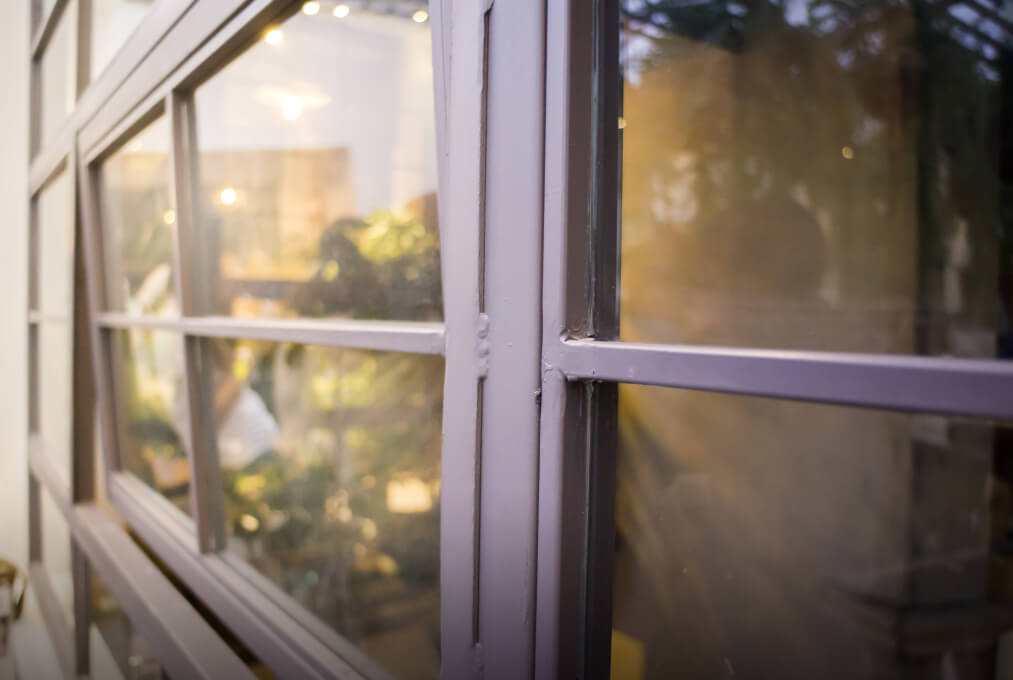
However, building regulations in the UK are constantly changing, and this may mean that your single glazed windows could be illegal.
A lot of Chameleon’s customers have single glazed windows in listed properties. They may be concerned that these new regulations put them at risk. So, we’re covering whether it is illegal to have single glazed windows on your property below in-depth, and what you can do to improve your windows so that they conform to ever-changing building regulations.
Having single glazing in your property is not illegal, particularly if you own a listed or older property. The building regulations that confused this debate somewhat was an act bought in 2002. This act states that any replacement windows put in after April 2002 must conform to certain energy efficiency ratings.
They must have a minimum energy performance rating of ‘E’.
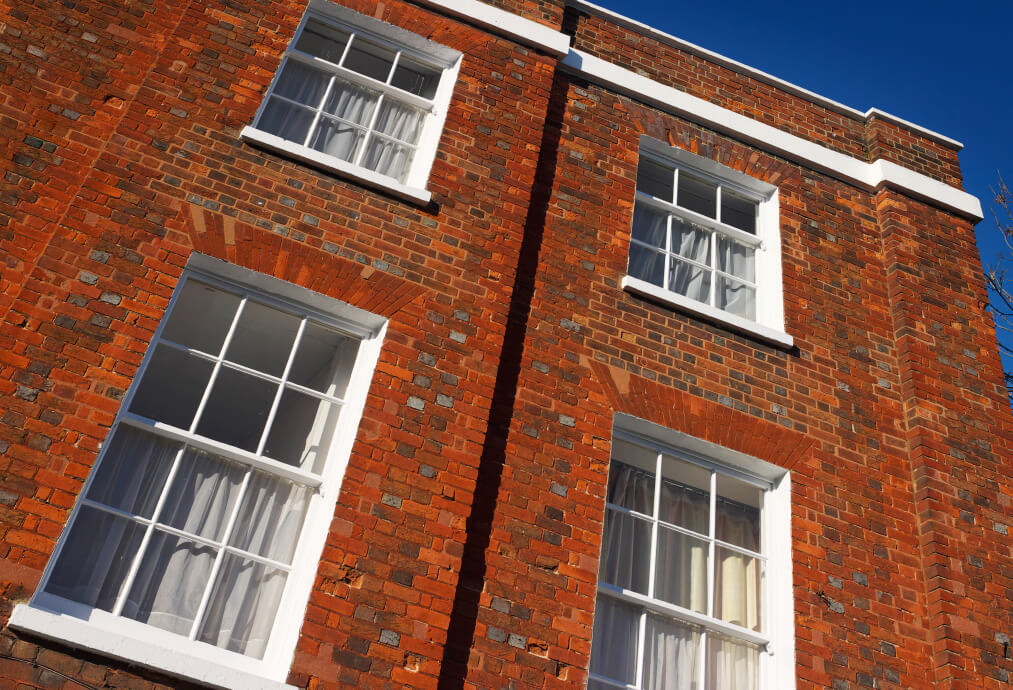
Any building built after this date must also conform to these rules. So, any new homes and other buildings must have windows that have a certain energy efficiency rating. Put it very simply. This means all new build homes (built after April 2002) must have double glazing installed to conform to EPC ratings given by the local authority.
This does mean, of course, if you live in a property with single glazing and want to replace them, you now have to replace the windows with energy-efficient replacements. This is likely to be double glazing, but we’ll get on to your options in just a moment.
Under the current building regulations, replacement windows in a property must have an efficiency rating of a minimum of ‘C’ or have a U-value of 1.6 W/m2K or lower.
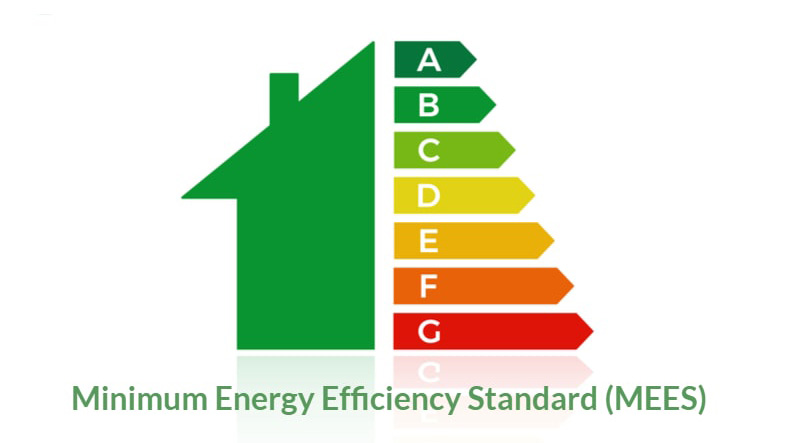
It is very unlikely that your current windows (if they are single glazed) have a U-Value anywhere close to this. Most single glazing units have a U-Value of 5.8 W/m2K. The double glazing that we install into sash and casement windows has a U-Value of 0.7 W/m2K.
This doesn’t mean that your windows are illegal and that you’ll be fined for having them in your home. All it means is that if you are to replace your windows, your new ones must meet the requirements above. But why? Looking at what a U-value is may help us understand these regulations and why they are so important.
The U-Value of a window refers to the rate of heat transfers through the window. The lower the number, the better the window is at keeping temperature changes at bay.
For example, a window with a high U-Value (like a single glazed window, for example) will transfer a lot of heat into the home during the summer. The moment the sun hits the window, the air around the window will heat up, and this will flow through the home.
If the window has a lower U-Value, though, this process will take much longer to happen. The FINEO glass that we use, for example, is vacuum-sealed double glazing. The warm air that’s hitting the outside pane is blocked from the inside pane by a vacuum. So, there is hardly any heat transfer at all.
This is a basic breakdown of what a U-Value is. The testing of U-Values and the science behind it can get somewhat in-depth. However, in short, the higher the U-Value number that a window has, the less energy efficient it is.
Whether secondary glazing meets these new energy efficiency regulations can greatly depend on the condition of your current windows. However, most sash window secondary glazing units generally have a U-value of around 2.7 W/m2K.
So, as the new regulations state that windows put in after 2002 need a U-value of 1.6 or lower, most secondary glazing units won’t conform to these new regulations.
If you already have secondary glazing installed, there is nothing to worry about. However, if you’re considering having it installed, you may want to consider double glazing instead. There are many other benefits to double glazing over secondary glazing too.
Your windows will function as they always have, and you’ll still have a window sill, for example. Plus, if you have FINEO double glazing installed, it can often be retrofitted into your existing wooden window frame and is as energy efficient as triple glazing.
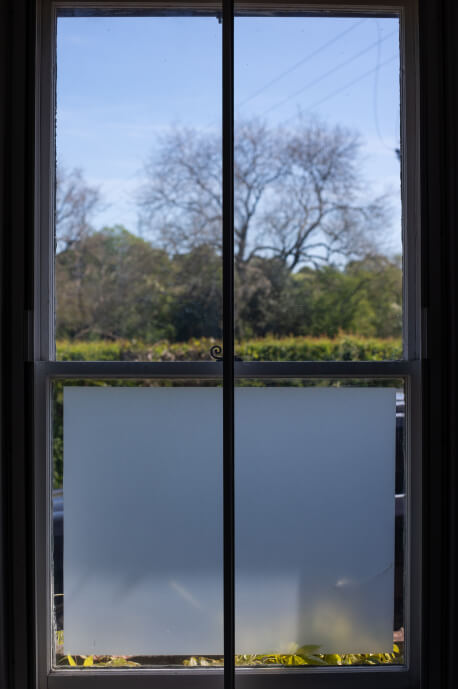
If you’re concerned about these new energy standards for windows, then hopefully, we can put your mind at ease. While your current windows may not conform to these standards, it is nothing to worry about. There is nothing you need to do to your windows currently in order for them to conform to these standards.
It is only when you have new windows installed that these standards will affect you. However, if you use a reputable double glazing company, their windows should already conform to these new standards and regulations. So, once they are installed into your home, your windows will now meet the energy standards required.
Listed buildings are not affected by these new standards either. As the building is right now, it is fine. It is only when you want to replace the windows that the new regulations will affect you. You’ll need to replace the windows with more energy-efficient windows.
If you do own a listed building, you will likely need to seek planning permission in order to have new windows installed. Even if you use our window restoration and double glazed windows services. While these services don’t change the appearance of your property at all, some work is needed to install the double glazing.
For listed buildings, finding double glazing companies that can install windows that don’t change the style of the property at all can be a challenge. However, here at Chameleon, we have years of experience renovating sash and casement windows in listed buildings and adding double glazing as well. So, if you’re concerned about these new regulations and how your listed building will be affected, get in touch, and we can provide a quote for all repairs and installing double glazing as well.
You can rent out a property that has single glazing as long as the energy rating of the property is higher than an ‘E’. There are some exemptions to this, though. Now, unless there are other energy efficiency items in place, a property with single glazing will have a difficult time reaching an ‘E’ rating.
One of the easiest ways for a property to get a better EPC rating is to have double glazing installed. Of course, if you’re concerned that the look of the property may change as a result of the double glazing, Chameleon can help you there.
For renters, you will need to check the energy rating of the property. If it has an energy rating over ‘E’, then the landlord can rent it as they wish. If the property doesn’t have an ‘E’ EPC rating (Energy Performance Certificate), then the property must be improved. The easiest way to improve the energy rating of a property is to have double glazed windows installed.
If you currently have single glazing in your home (and it was installed before 2002), then you aren’t doing anything illegal.
You could face fines if your windows are replaced with glazing that does not conform to the new regulations and standards, though. However, as the regulations have been in place for some time now, it is very difficult not to conform to these standards. All glazing manufacturers must follow these regulations and ensure that their windows meet the requirements. So if you’re having new glazing installed, it is very likely that it will meet the standards required.
Yes, in any home built after 2002, double-glazed windows are now compulsory. So, any new build homes or business properties now must have double glazing installed when they are built.
However, it is not compulsory to have double glazing installed in your home if you have single glazing. If you live in an older property that has single glazing, you don’t need to rush out and find a double glazing company.
It is only when you do decide to change the windows that they must conform to these regulations. So, if you decide to change your single glazing today, they must now fit the new energy efficiency standards.
There are plenty of houses around the UK that still have single glazing. The people who own these houses have nothing to worry about. Having single glazing is not illegal. It is only when you want to replace the windows that the new ones must meet the requirements of the new energy rating regulations.
There are also some homes around the UK that are exempt from improving their energy ratings and replacing windows. Some very old listed properties, for example, are exempt from replacing windows in order to conform to these new standards. They are also exempt from other energy-efficient schemes that have rolled out in the past, like loft insulation regulations, for example.
If you’re looking at replacing your single glazing with double glazing, you may be wondering about the benefits. Well, double glazing has a lot of benefits over single glazing, including:
When the sun hits a window, the window begins to heat up. If there is only one pane of glass, this heat can easily be transferred into the home. This is why a home with single glazing is so hot in the summer because they have poor energy efficiency. And why they experience heat loss in the winter.
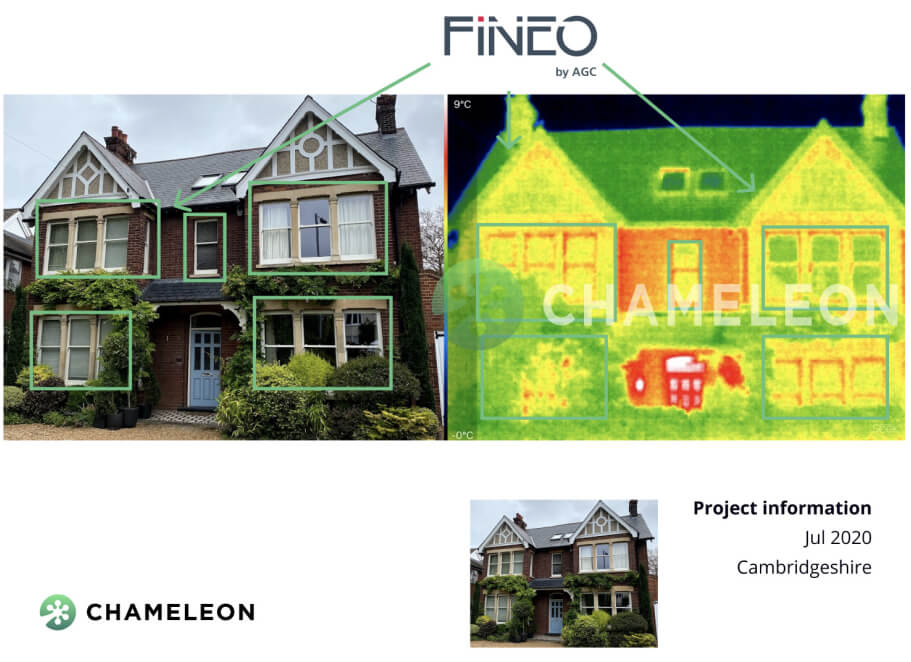
Previously single glazed sash windows after double glazing retrofitting service (Please notice the door, which is still single glazed)
However, with double glazing, the heat is stopped by the gap between the glass. In the case of the double glazing that we use, this is a vacuum. The vacuum prevents the heat from one side of the glass from affecting the other side. So, in the summer, your house will stay cooler. And in the winter, this prevents the warm air in your home from escaping outside.
A lot of single-pane windows have issues with dampness and mould because the draught-proofing isn’t that good. Well, modern double glazing has much better draught proofing properties. This includes the double glazing that we offer on older buildings. The draught-proofing in double glazing is far superior to single glazing and can eliminate draughts, of course, but also damp and mould issues.
Double glazing dampens and reduces sounds far better than single glazing. This is due to the gap in the middle of the panes of glass again. Sounds find it difficult to bridge the gap between the panes so that the noises will be more muffled. If you live in a high-traffic area, having double glazing can be very beneficial.
Double glazing can greatly reduce your energy bills. You can spend less time heating your home because the double glazing will trap the air inside. You’ll have better draught proofing helping this too. About 18% of heat loss in a home is through the windows to see a saving on your energy bills.
If your home was built after 2002 then yes it is a legal requirement to have double glazing under regulations that came in that year. However, if your home was built before this, you don’t need to rush out and get double glazing. Although, if you are planning on changing your windows, the replacements must conform to these regulations. So, you don’t need to buy double glazing if you don’t already have it, but if you are buying new windows for your property, they need to be double glazed or fit the regulations.
Double glazing is compulsory for homes that are built after 2002. So, all new build homes require double glazing to fit in with regulations and energy rating standards. However, you do not need to install double glazing in your home if you have single-pane windows. If you do decide to replace your windows, though, the new ones must conform to the new regulations.
If your property currently has single-pane windows, then you can keep them. However, you cannot replace a double glazing unit with single-pane windows. You can’t actually replace single glazed with single glazed anymore, either. Under the new regulations, any home built after 2002 or any window replaced in any home (unless it is exempt) must meet energy rating standards. The only way for windows to meet these standards is if they are double glazed.
Yes, you can rent a property with single glazing. However, the landlord must ensure that the property has an energy rating of ‘E’ or more. If it doesn’t, they must do the work to make the house more energy-efficient. One of the easiest ways of doing this is installing double glazing.